I’m just gonna scramble my language fix together on here and share parts of my language journey. Let’s learn from each other ✨
Don't wanna be here? Send us removal request.
Text
Language struggles.
I have written stories about having confusing conversations with multiple people. I’ve written about misunderstanding that were cleared up and just lovely little stories about communicating with a language barrier and I loved many of the situations and the people.
I now have to work with one person who speaks my mother tongue and it just doesn’t work… I ask a very direct question. “Can you explain to me how to do X”, and I get a response that looks like it’s written by chatGTP and I don’t understand it. It doesn’t actually seem to be a full answer. I think he skipped steps… He asks me to do something with Y and I say I don’t know how to and he just says okay and walks away. I stil have to do it…. Today one person asks him about point Z and he gives an answer that relates to W. When I try to help to clear up the misunderstanding. Cause I actually figured out what she means it appears not to work. Everyone gets frustrated and he tells me to let him talk…. He asks how X is going, I tell him A & B. He says “glad it’s C! Can you explain B?” Like I said A, not C. It does not sound the same at all. I was just so baffled by what he heard I couldn’t even bring it up properly in that conversation anymore.
This isn’t fun. I want to fix this. I want this to work but I don’t know how to get this to work. I ask many more questions than I’m comfortable with and at the end of the conversation I don’t have answers I am just frustrated. The person whom I have this misunderstandings with does keep asking me questions unrelated to work, like how am I doing and how was my weekend, but on work related things I don’t get answers I can work with and honestly I at the moment don’t want to tell him about my weekend. I want actual answers to my questions 🥲
FYI. This person has 20 years more experience with the work. I cannot avoid this person on some subjects.
Advice is appreciated. Simple feedback as well. This communication is really tiresome. I am tired.
0 notes
Text




Translating puns.
Read on Webtoon
Early access and exclusive content on Patreon
Buy the comic book on Amazon
38 notes
·
View notes
Text
Honestly, as a German I can not quite understand the obsession of the English speaking world with the question whether a word exists or not. If you have to express something for which there is no word, you have to make a new one, preferably by combining well-known words, and in the very same moment it starts to exist. Agree?
#language#language fun#german language#the versatility of the german language#languages#😍✨ now I want to go and focus on German again
157K notes
·
View notes
Text
Language thought!
I have gotten a lot of great Polish colleagues! This is wonderful! I’m not talking about like 10 Ukrainian people like before. We can speak about a few 50 people with a Polish nationality at least.
Okay, well. The amount of new people I now don’t actually know is scary. I had a few Polish colleagues before but they spoke my mother tongue well so their mother tongue wasn’t obvious. These new people don’t. Most have an English level of at least A2, I think many are at B1. Some are below A2.
I am now questioning if I should learn Polish as well, but my Ukrainian isn’t even at a proper A2 yet. Neither are some of the other languages I’ve listed.
In comparison to my Ukrainian colleagues most of the Polish colleagues do speak English so I guess I should focus on Ukrainian and the others although the Ukrainian colleagues are also working hard on their English.
At the end of the day, if I cannot communicate with one of the Polish colleagues directly there are more people who can help us understand each other.
0 notes
Text
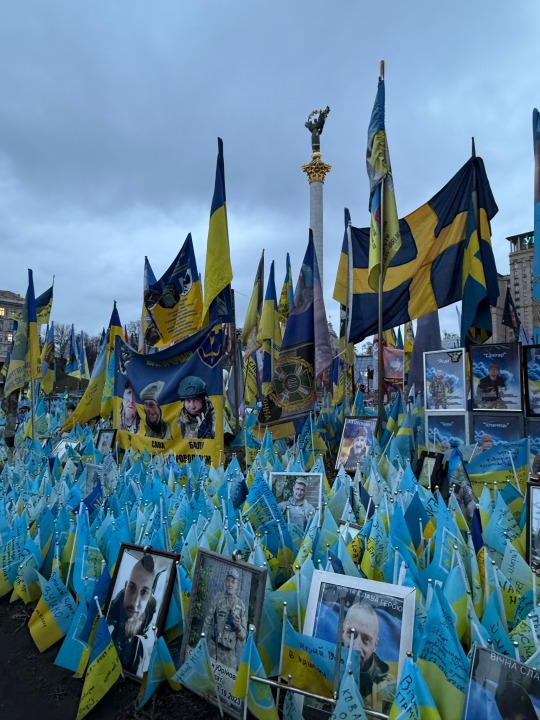
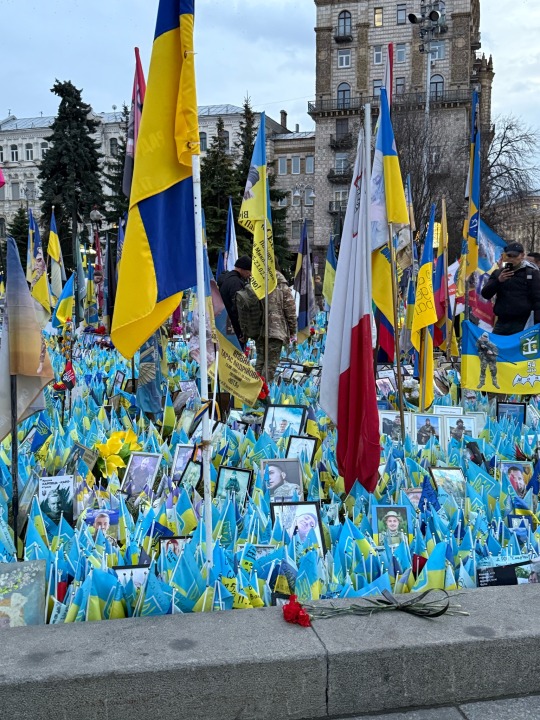
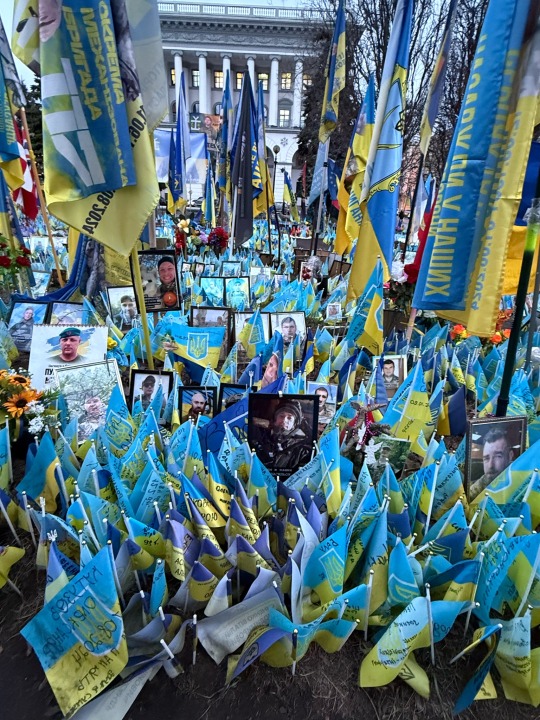

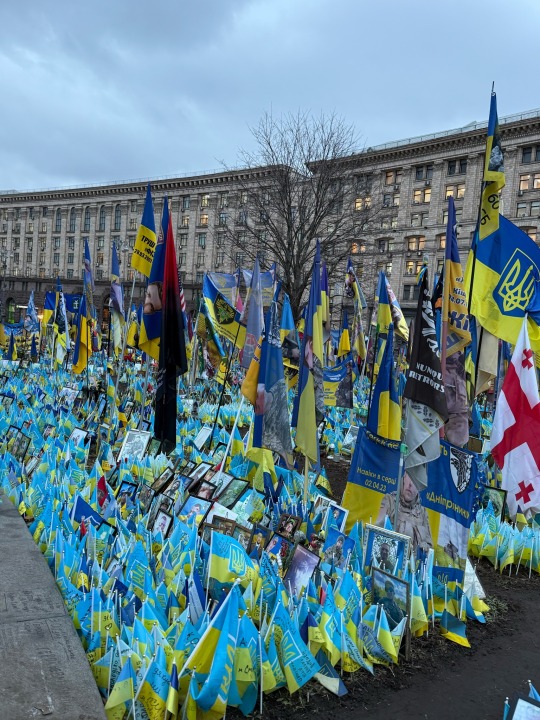

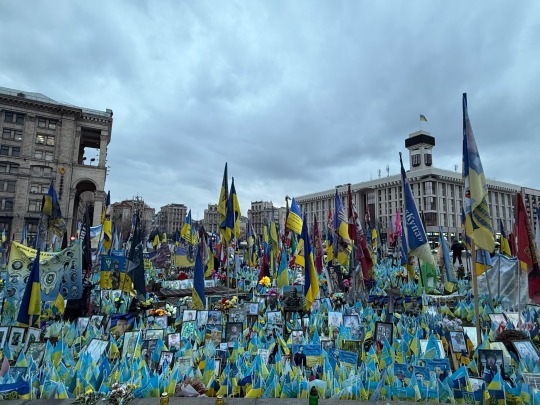
“If you know someone killed by Putin, leave a flag.”
When I took these photos earlier this year, 3 of these flags represented people I knew- family, friends, colleagues. Since then, the number has increased to 5.
I lost track of the amount of time I spent trying to observe every single flag and photograph in the sea of blue and yellow. Every single one of these heroes deserves to be remembered. All of them should still be alive. All of them are mourned, even by those who didn’t know them in life. The only reason they are gone is because their neighbor is a terrorist state. All of them deserve justice.
I don’t want to exclude foreign volunteers. They didn’t waste their time waiting for other people to do the right thing. They came to Ukraine because they believed in their values so strongly that simply preaching about them wasn’t enough. They backed them up with action and gave their lives for a cause bigger than themselves.
The bravery of these heroes can’t be understated.
Appeasement isn’t justice. Occupation isn’t peace. May russia burn. Make russia small again.
Слава Україні. Героям слава // Glory to Ukraine. Glory to the heroes.
67 notes
·
View notes
Text
Insects are cute lil’ buggers!
(See what I did there 😇).
1 note
·
View note
Photo
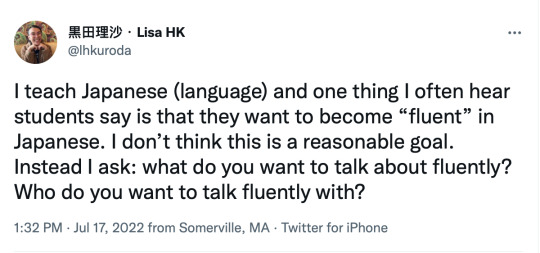
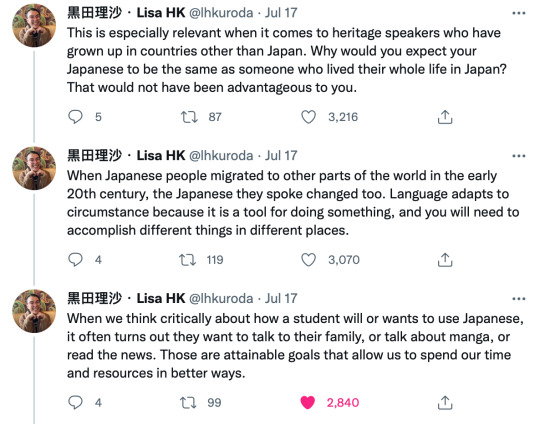
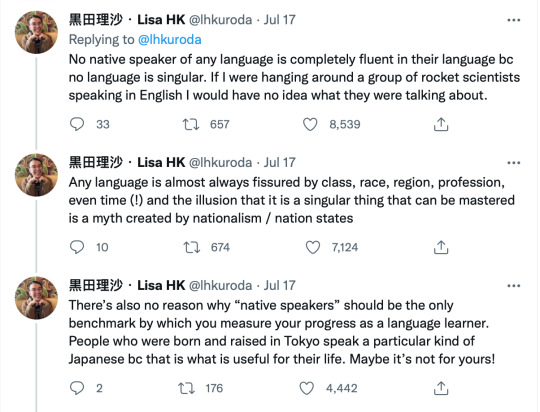
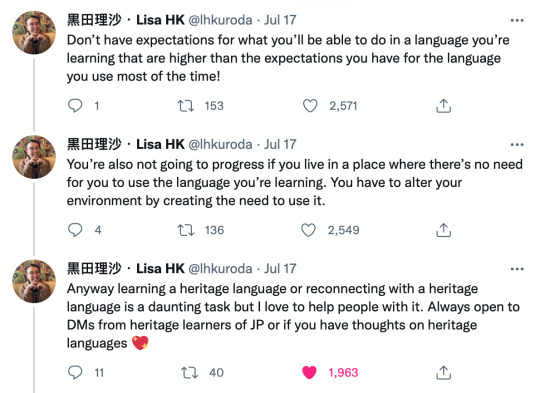
This Twitter thread really spoke to me. I wanted to share it with anyone who hasn’t seen it.
38K notes
·
View notes
Text
Few ways you can say cat in Ukrainian language
A cat- kit
A cute cat- kotyk
A huge cat- kotysche
A huge evil cat- kotys’ko
A cat (derogatory)- kotyara
Female cat - kishka
Cute female cat- kishechka
Another cute female cat- kytsya
Another female cat- kyts’ka
Cuter female cat- hytsen’ka
Baby cat- koshenya
Smaller and cuter baby cat- koshenyatko
Even smaller and cuter baby cat- koshenyatochko
I hope it helps

1K notes
·
View notes
Text
I love you translator notes I love you translators caring that I fully grasp the meaning of the original text I love you translators adding cultural context and specifics so I can better understand what's going on I love you long rants on why a joke is impossible to translate I love you translators adding their little comments to the scene I love you translators feeling human and involved in the material I love you translating as a form of art I love you little t/n abbreviation
37K notes
·
View notes
Text
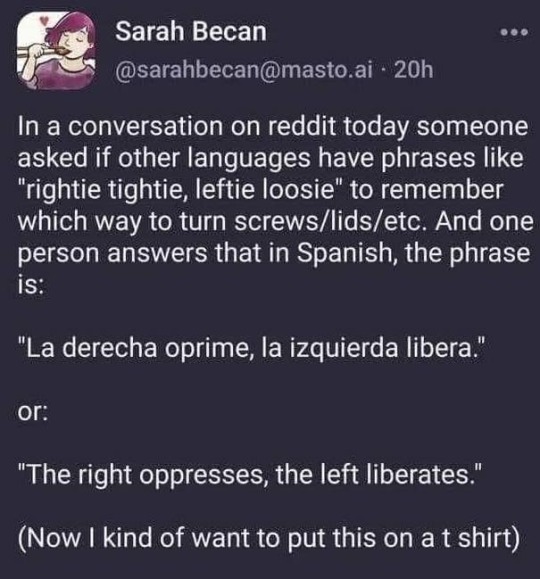
10K notes
·
View notes
Text
I told my students they're allowed to be creative and don't have to be factual when writing about themselves in German because I keep getting questions like "what if I don't have roommates or what if I don't have hobbies" and I'm like guys just make something up! Have fun! I won't fact check you!
So now I am grading homework where a student is claiming to be from North Korea and his hobby is tax fraud
122K notes
·
View notes
Text
Did you know that the english word “star” and the japanese word 星(ほし)don’t actually mean the same thing?
Language does not simply name pre-existing categories; categories do not exist in 'the world'
— Daniel Chandler, Semiotics for Beginners
I read this quote a few years ago, but I don’t think I truly understood it until one day, when I was looking at the wikipedia article for “star” and I thought to check the Japanese article, see if I could get some Japanese reading practice in. I was surprised to find that the article was not titled 「星」, but 「恒星」, a word I’d never seen before. I’d always learnt that 星 was the direct translation for “star” (I knew the japanese also contained meanings the english didn’t, like “dot” or “bullseye”, but I thought these were just auxiliary definitions in addition to the direct translation of “star” as in "a celestial body made of hydrogen and helium plasma").
To try and clear things up for myself, I searched japanese wikipedia for 星. It was a disambiguation page, with the main links pointing to the articles for 天体 (astronomical object) and スター(記号)(star symbol). There was no article just called 「星」.
It’s an easy difference to miss, because in everyday conversation, 星 and star are equivalent. They both describe the shining lights in the night sky. They both describe this symbol: ★. They even both describe those enormous celestial objects made of plasma.

But they are different - different enough to not share a wikipedia article. 星 is used to describe any kind of celestial body, especially if it appears shiny and bright in the night sky. “Star” can be used this way too (like Venus being called the “morning star”), but it’s generally considered inaccurate to use the word like this, whereas there is no such inaccuracy with 星. You can say “oh that’s not actually a star, it’s a planet”, but you CAN’T say 「実はそれは星ではなく惑星だよ」 (TL: that’s not actually a hoshi, it’s a planet). A planet IS a 星.
星 is a very common word, essentially equivalent to “star”, but its meaning is closer to “celestial body”. I haven’t looked into the etymology/history but it’s almost like both english and japanese started out with a simple, common word for the lights in the sky - star/星 , but as we found out more about what these lights actually were, english doubled down on using the common word for the specific scientific concept, while japanese kept the common word generic and instead came up with a new word for the more specific concept. If this is actually what happened, I’d guess that kanji probably had something to do with it - 星 as a component kanji exists inside the word for planet, 惑星, and in the word for comet, 彗星, and in the scientific word for “star”, 恒星, so it makes sense that it would indicate a more general concept when used standalone.
This discovery helped me understand that quote - categories don’t exist in the world, we are the ones who create them. I thought that the concept of “star” was something that would be consistent across all languages, but it’s not, because the concept of “star” is not pre-existing. Each language had to decide how to name each of those similar star-like concepts (the ★ symbol, hot balls of gas, twinkling lights in the sky, planets, comets, etc), and obviously not every language is going to group those concepts under the same words with the same nuance.
Knowing this, one might be tempted to say that 恒星(こうせい) is the direct translation for “star”. But this isn’t true either. In most of the contexts that the word “star” is used in english, the equivalent japanese will be simply 星. Despite the meanings not lining up exactly, 星 will still be the best translation for “star” most of the time. This is the art of translation - knowing when the particulars are less important than the vibe or feel of a word. For any word, there will never be an exact perfect translation with all the same nuances and meanings. Translation is about finding the best solution to an unsolvable problem. That's why I love it.
5K notes
·
View notes
Text
Yet another sweet fact about the Armenian language: the word for "friend" is ընկեր "unker" (the stress is on the second syllable, and the first "u" is pronounced like the "a" in the word "arise"). In this word, the prefix "un" means "together," and "ker" means "eat." So, essentially, ընկեր "unker a friend" is someone you share your food with 🌻
454 notes
·
View notes
Text
nothing better than the wrong capitalization of Sie
137K notes
·
View notes
Text
“Never underestimate the value of knowing another's language. It can be far more powerful than swords and arrows.”
Evanjalin, Melina Marchetta, "Finnikin of the Rock"
14 notes
·
View notes
Text
I just want you to know that the Ukrainian language has 3 words for "orange" and one of them is "жовтогарячий" which literally translates to "hot yellow"
148 notes
·
View notes
